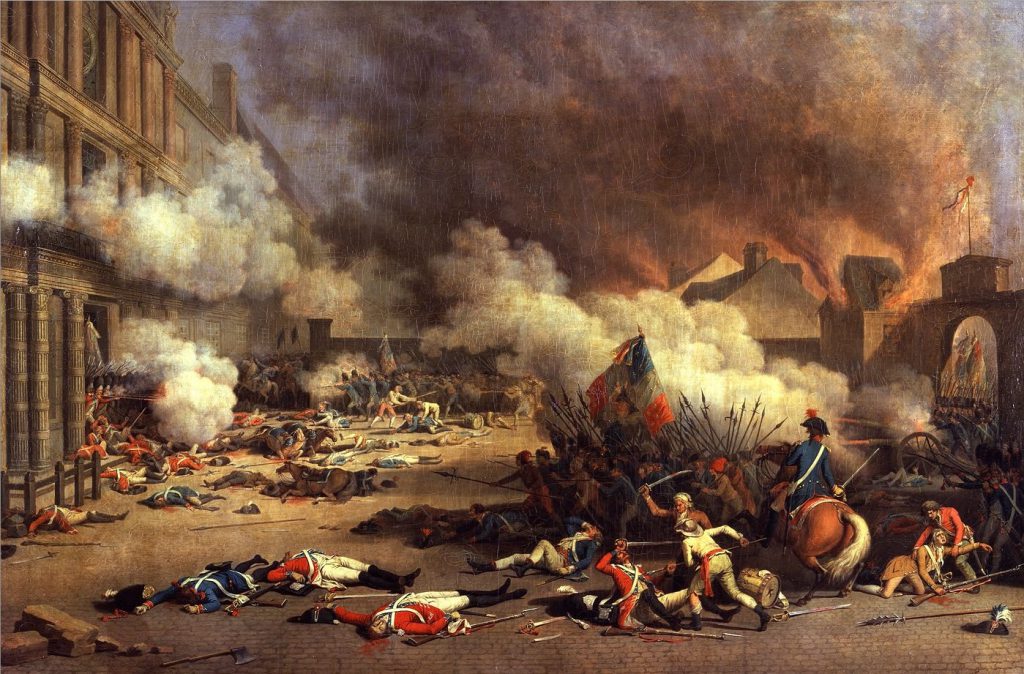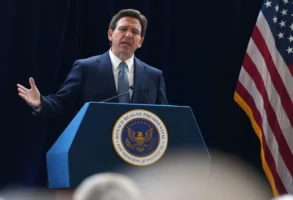I discovered Guizot’s History of Civilization in Europe while writing my own book, The Lost History of Western Civilization. If there is one early history of the West still worth reading in this day and age, Guizot’s is definitely it.
I ran across Guizot while researching the claim — widely accepted by contemporary academic historians — that the very idea of Western civilization was “invented” during World War I as a way of duping young Americans into fighting and dying in the trenches of Europe. Sensible Americans would long ago have dismissed this oddball claim as another bit of nonsense from the postmodern academy, had they encountered it. Obscure though it may be, however, the deconstructionist myth that Western civilization was a propagandistic invention of the First World War has been trotted out for decades by the educators responsible for junking Western Civ courses in favor of World History. According to these multiculturalist historians, Americans neither studied nor cared about Western civilization prior to World War I.
That turns out to be utterly false, and Guizot’s great work is an important reason why. If you’d attended college between about 1840 and 1890, you would likely have read Guizot’s History of Civilization in Europe. In an era where history professors were few and far between, the book was typically taught by the college president. This wasn’t just a book for students, however. Guizot’s History of Civilization in Europe was read as widely by the public as the most popular novel. Along with the ancient Greek and Roman literature that was the mainstay of liberal education in the early and mid 19th century, nothing influenced America’s understanding of the West in that era more than Guizot.
Guizot’s modern champion, Oxford political philosopher Larry Siedentop, calls The History of Civilization in Europe “the most intelligent general history of Europe ever written.” It’s easy to see why. In addition to shaping a couple generations of college students, Guizot’s book exercised a decisive influence over the three greatest political thinkers of his day: Alexis de Tocqueville, John Stuart Mill, and Karl Marx.
De Tocqueville decided to study the significance of liberty and localism in America largely because of Guizot’s lectures, which he attended in person. Inspired by Guizot’s lectures, John Stuart Mill abandoned his hope that an educated “clerisy” would civilize Europe. Instead, under the influence of Guizot, Mill turned to free speech as the true path to societal advancement. And Marx developed his theory of class conflict based on his reading of Guizot. Not half-bad for a few weeks’ worth of lectures.
Guizot’s great lectures were delivered in 1828 under dramatic circumstances. France in the 1820s was ruled by an “ultra-royalist” government that hoped to restore the aristocracy that had controlled France prior to the Revolution. Guizot, a leading inspiration for the partisans of liberal democracy, resisted the ultra-royalists by delivering public lectures on the history of representative government in Europe. The ultra-royalists struck back by suspending university lectures. That ban held until the government fell in 1827, after which Guizot thrilled the democrats of Paris with his series of lectures on European civilization. This background is what Guizot is referring to at the opening of Lecture One.
To read Guizot is to be transported to a time when the academic orthodoxies of our day were unheard of. Guizot believes that civilization is a fact rather than a social construction. Indeed, he sees civilization as the fact par excellence. Guizot believes that the West is the world’s most advanced civilization, above all because of its liberty. Today’s progressives ostentatiously reject such judgments in favor of a careful relativism. Yet by definition, progressives advocate and celebrate an advancing “arc of history.” Have today’s progressives truly abandoned Guizot’s understanding of civilization, or simply driven it underground?
Guizot was one of the first historians to explain Christianity’s essential contribution to the West’s modern ideals liberty and equality. In post-revolutionary France, Christianity and democracy looked like enemies. Guizot reconciled them. He even saw God’s Providence shining forth in the progress of the West. This is why Guizot’s great lectures are out of season, or at least why they appear to be. Yet by way of his immense influence, as well as through the continuing, if secularized, presence of his faith in Western progress, Guizot lives on.
You can read Guizot’s extraordinary lecture-series, The History of Civilization in Europe, at the link provided above, or by searching for any of the various full-length versions available via Google Books. Happy quarantine.
Stanley Kurtz is a senior fellow at the Ethics and Public Policy Center.









